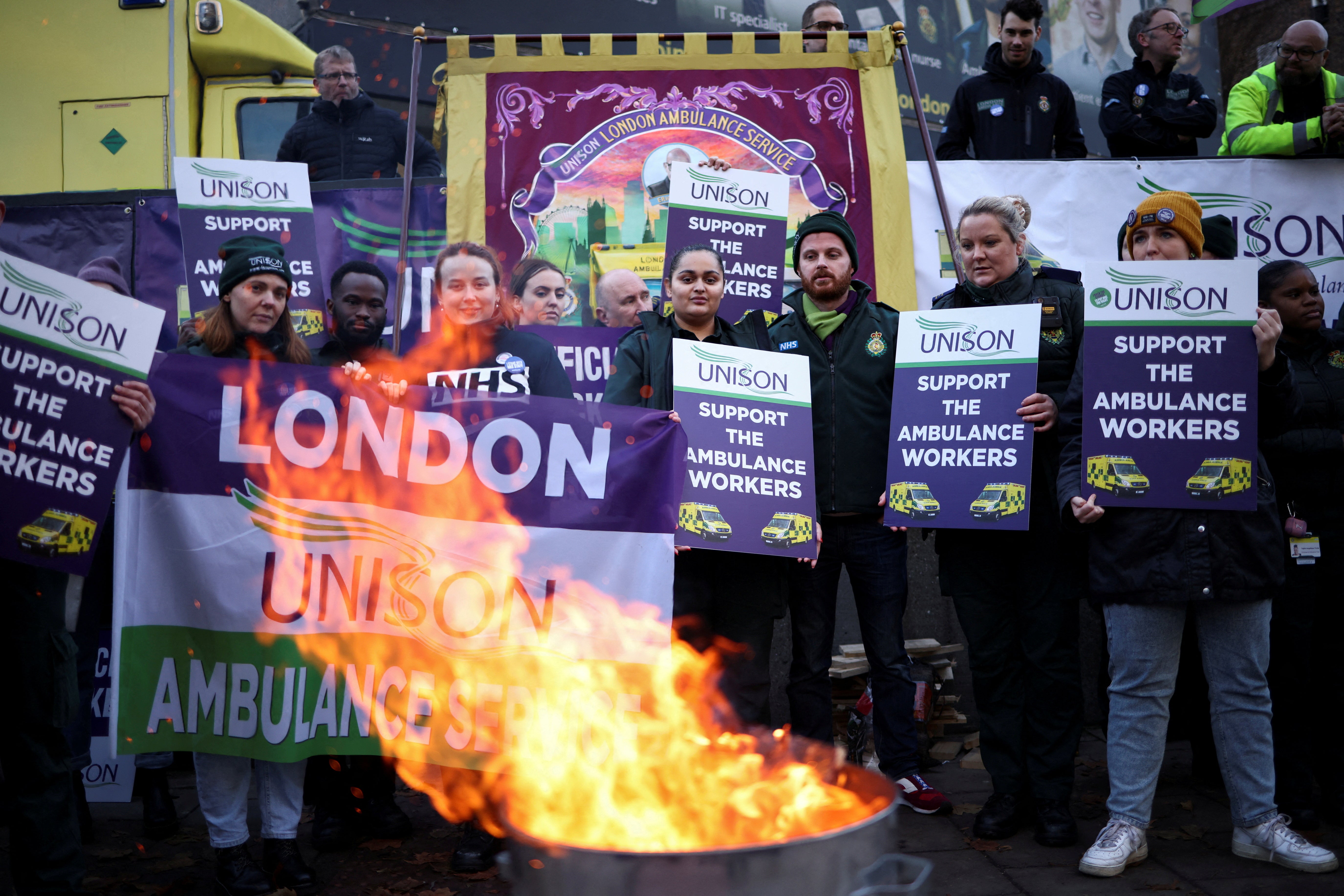The party that founded the NHS will have to save it again
New Labour left office with patient satisfaction at record levels – a far cry from today, writes Andrew Grice


To keep saving lives we need to save the NHS,” says an advert from the Unison public service union defending its strikes. A few years ago, such a message would have cut little ice with the public, but today it is wholly credible: the industrial action is not just about pay, but the sickly state of the NHS.
The stoppages by nurses and ambulance staff posed an uncomfortable question for ministers: on non-strike days, the service was already swamped, so could anyone tell the difference? Ambulance workers can spend an entire shift waiting in line at an accident and emergency department, while A&E doctors can return to work after 12 hours off to find the same patients queueing.
Some right-wing Conservatives relish this existential crisis as a long-awaited opportunity to reform an institution they regard as a socialist, big-state creation stuck in the last century. “It’s no longer a taboo subject,” one told me. “It wasn’t possible to raise the future of the NHS during the pandemic. Now the debate has begun.”
Right-wingers believe that while the public still love the NHS – the former chancellor Nigel Lawson called it “the closest thing the English people have to a religion” – their patience is wearing thin as the system creaks before their eyes and waiting lists reach a record 7.2 million.
The right would love to see the £180bn NHS budget no longer being funded through general taxation, which would further their tax-cutting agenda. Some back the introduction of charges for services such as seeing a GP, which would be the thin edge of the wedge. Some want tax relief on private health insurance contributions – a step towards the better-off paying for their healthcare and the NHS becoming a safety net for the poorest.
Critics see such a two-tier system as privatisation by the back door. Indeed, it would be harder to sustain a tax-funded safety net if taxpayers got nothing in return; for all its problems, the present system gives everyone a stake in the NHS.
As the NHS approaches its 75th birthday in July 2023, Rishi Sunak wants reform to be one of his big ideas. As chancellor, he surprised fellow ministers with tough language about more resources not being the answer. Now his allies talk of “modernisation, not money”. He has set up a task force, modelled on the one that delivered the Covid vaccines, to ensure that private healthcare providers can treat more NHS patients – which does not amount to privatisation, as treatment will remain free at the point of use.
The cry for NHS reform is nothing new. But politicians usually opt for short-term sticking plasters, with an eye on the next election. Sunak will essentially be managing demand, or even decline. Again, this leaves little time for prevention – a better long-term option than cure.
Any real solution for the NHS will mean finding one for social care, because 13,000 people are stuck in hospital who do not need to be there. But rescuing the care system will require the UK, still relatively low-taxed among developed economies, to raise taxes. Sunak tried this, increasing national insurance for his “health and social care levy”, but Liz Truss scrapped it. He knows his MPs would riot if he tried to raise taxes any further.
Another necessary move is to devolve decision-making inside the NHS, but ministers are reluctant to “let go”, knowing they will be blamed in any crisis. Their latest legislation handed the health secretary more power to interfere in the work of NHS England, even though it is impossible to run such a vast organisation from Whitehall.
Sunak’s problem is that voters are unlikely to think the NHS is safe in Tory hands. The strikes are a pushback against 12 years of inadequate funding (given the pressures arising from an ageing population). Today’s problems can’t all be blamed on Covid, as ministers suggest; waiting lists stood at more than 4 million before the pandemic. “Give us the chance to put right our mistakes” is not a very effective political pitch.
True, more money is not the only answer. The Institute for Fiscal Studies points out that NHS spending in England is 12 per cent higher than when the Tories came to power in 2010, with 13 per cent more doctors and 11 per cent more nurses, and yet fewer patients are being treated than before the pandemic.
There is now a political consensus that reform is needed. I’m told Keir Starmer rejected the cautious approach of his then advisers last summer and asked Wes Streeting to come up with radical changes. The impressive shadow health secretary has done so with relish, warning that the NHS must “reform or die”. He has won plaudits from Tory-supporting newspapers and left the government looking flat-footed – for example, Labour would make greater use than the Tories of the private sector. But Streeting will need to say more to keep one step ahead of Sunak.
The government’s mishandling of the pay disputes will make it even harder for the Tories to win credibility on the matter of the NHS. In contrast, Labour has rescued it before; the Blair and Brown governments raised national insurance to boost health spending to European levels and cut waiting lists. New Labour left office with patient satisfaction at record levels – a far cry from today.
The party that founded the NHS will have to save it again.






Join our commenting forum
Join thought-provoking conversations, follow other Independent readers and see their replies
Comments